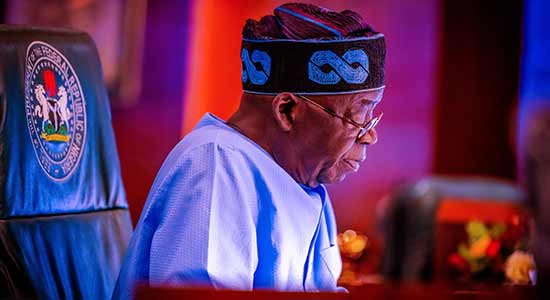Even if President Bola Tinubu did not write out any terms of reference to the Economic Advisory Team, his words at the meeting with the members were enough. “We will not be blamed for not trying. We assure Nigerians that we will do our best to get our Marshall Plan in place and fashion out the best economic future for this country.”
The members include Chairman of the Dangote Group, Aliko Dangote; Chairman of BUA Group, Abdul Samad Rabiu; Chairman of Heirs Holdings, Tony Elumelu; Anambra State Governor, Prof Charles Soludo; Group Chief Executive Officer of Pandora Plc, Wale Tinubu; Managing Director of Matrix Group, Abdullabir Aliu; Chief Executive Officer of Financial Derivative Company, Bismarck Rewane; and the Director-General, Manufacturers Association of Nigeria, Segun Ajayi-Kadir.
The term used by our president is quite significant and shows that he understands the degree of the problem facing Nigerians right now. This economy needs to be rebuilt. Right now it is on the floor, and we can only pretend otherwise to our regret.
The concept of a Marshall Plan evokes the imagery of bringing back to life a city, nation, or region that has been devastated by a force. It evokes the image of a mission to rescue people whose lives have been torn to shreds by the forces of war. It evokes the image of reconstruction and rebuilding, and in many ways, that is what Nigeria needs today to be able to move forward.
FG urged to focus on divestment, reduce borrowing for capital projects
Invest in indigenous renewable energy, firm urges FG
Since we are talking in the context of a Marshall Plan, let us go by the spirit of the original Marshall Plan. We know that by 1945, at the end of the Second World War, Europe had been flattened by the forces of war because most of the fighting took place on its soil. There was hunger, there was destruction, and there was poverty everywhere. There was political instability across the continent. That was an opportune moment for either of the two superpowers then – America and the Soviet Union – to cash in and take advantage.
It was against this background that George C. Marshall, Secretary of State and after whom the plan was named, on June 5, 1947, in an address at Harvard University, laid out the idea of a European reconstruction to be funded by the American government. “The truth of the matter is that Europe’s requirements for the next three or four years of foreign food and other essential products—principally from America—are so much greater than her present ability to pay that she must have substantial additional help or face economic, social, and political deterioration of a very grave character,” Marshall said.
As Encyclopedia Britannica says, “The United States feared that the poverty, unemployment, and dislocation of the post-World War II period were reinforcing the appeal of communist parties to voters in Western Europe”.
The spirit behind the Plan was that if America did not deploy its resources to help Europe, the growing incidences of poverty, unemployment, and other social challenges would soon get out of hand and would have obvious consequences.
Nigeria is in such a situation today. These same problems are today giving Nigerians easy alternatives.
The principal premise of our own Marshall Plan (we might as well call it the Tinubu Plan) should be that we need it to pull our country back from the brink where it precariously hangs right now. Poverty is pushing some Nigerian youths into crime; others are voting for the bandits or kidnappers. Besides, poverty is taking away the humanness of Nigerians. The government must be seriously worried that Nigeria is today a textbook example of poverty and all its indices.
The establishment of this committee is an acknowledgement by Mr President that the fundamental things must be tackled and doing so needs deep thinking. It needs well-thought plans devoid of the knee-jerk reflexes that have characterised most of the government’s decisions so far.
Tokenism must give way to realism. To me, this committee should have been born six months ago or earlier. And had that been, things probably would not have gotten where they are now. You people are practical men, who have grown enterprises from scratch to where you are now. Enterprises are part of the building blocks of economies. And if they are built over time, then the economy must also be built or rebuilt over time. The emphasis today, the glamour given to benefits without effort, must be abolished from the Nigerian economy. America’s Marshall Plan for Europe lasted for about four years, during which period the US spent about $15 billion to reclaim Europe from an Enemy, as it were.
As your committee meets, the Monetary Policy Committee of the Central Bank of Nigeria has just raised its Monetary Policy Rate to 22.75 per cent. This is probably one of the highest interest rates (cost of capital) in the world right now. You all as business people know the implications of this to both businesses and individuals.
The Nigerian economy is being encircled by the political class beyond reason. If this stranglehold on the economy is not resisted, we may end up having a political system but without an economy. What is at stake now is the survival of the Nigerian economy and the continued existence of capitalism on which this economy is run.

 Join Daily Trust WhatsApp Community For Quick Access To News and Happenings Around You.
Join Daily Trust WhatsApp Community For Quick Access To News and Happenings Around You.

